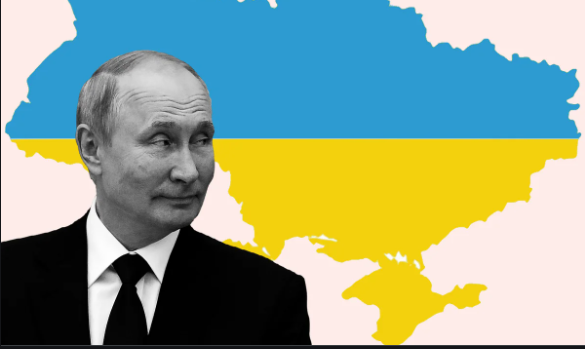Virendra Pandit
New Delhi: As a long-feared Russian ‘invasion’ of its southern neighbor Ukraine brought the planet on Tuesday to the edge of the biggest conflict since the end of the Second World War in 1945—some even dubbed it as the beginning of the Third!–geopolitical players reacted differently, underscoring the woes of being part of the networked economies and the possible fallout of war on their own national interests.
The US, which saw the invasion imminent, fumed and threatened sanctions; China weighed options on how to maximize its own clout and opportunity; the European Union, worried at the fate of Russian gas feeding its economic engine, remained cautious in reaction; and other countries, far off from the potential war zone, watched or uttered platitudes—they included Japan, South Korea, New Zealand, and others.
The developments on Monday and Tuesday came amid a spike in skirmishes in the eastern regions that the West believes Russia could use as a pretext for an attack on the western-looking Ukrainian democracy that has defied Moscow’s attempts to pull it back into its orbit. Russia and Ukraine blamed each other for violations.
Although Russian President Vladimir Putin on Monday ordered troops into separatist regions of eastern Ukraine, Moscow did not clearly say if the forces were actually moving, and even claimed it was an effort to “maintain peace.” This showed that Russia may only want to avert an expensive war and merely flexed war muscles to force Ukraine away from joining NATO and the European Union.
Any war could cause massive casualties, an energy crisis in Europe, beginning with its largest economy in Germany, and cascading economic chaos around the planet. That is why Europe is keeping a cautious watch over the Ukraine crisis.
Putin’s directive to the troops came soon after he recognized the separatist areas in Ukraine, paving the way to provide military support to pro-Russian activists. The West regarded it as a breach of world order and set off a frenzied scramble by the US and others to respond, the media reported on Tuesday.
At the request of a panicked Ukraine, the US, a worried Europe, and others, the UN Security Council set a rare night-time emergency meeting on Monday. Ukraine’s President Volodymyr Zelenskyy, however, tried to calm his people, telling them: “We are not afraid of anyone or anything. We don’t owe anyone anything. And we won’t give anything to anyone.”
Reacting to the emerging scenario, the White House prohibited US investment and trade in the separatist regions and considered likely fresh sanctions against Russia.
Putin justified his decision, blamed NATO for the current crisis, and called the US-led alliance an existential threat to Russia. Citing over a century’s history, he claimed modern Ukraine is inextricably linked to Russia. Ukraine, he said, had inherited Russia’s historic lands and after the Soviet collapse in 1991 was used by the West to contain Moscow.
“I consider it necessary to take a long-overdue decision: To immediately recognize the independence and sovereignty of Donetsk People’s Republic and Luhansk People’s Republic,” Putin said ahead of signing decrees recognizing the Donetsk and Luhansk regions’ independence, eight years after fighting erupted between Russia-backed separatists and Ukrainian forces, and called on lawmakers to approve measures paving the way for military support to those he until now called “volunteers”.
State-controlled Russian media released images of people in Donetsk launching fireworks, waving large Russian flags, and playing Russia’s national anthem.
With about 150,000 Russian troops massed on three sides of Ukraine, the US has warned that Moscow’s invasion was imminent. Still, Presidents Joe Biden and Putin tentatively agreed to a meeting brokered by French President Emmanuel Macron in a last-ditch effort to avoid war.
Russia wants Western guarantees NATO will not induct Ukraine and other former Soviet republics to join as members, demanded the alliance halt weapons deployments to Ukraine, and roll back its forces from Eastern Europe, which Europe has rejected.
US National Security Adviser Jake Sullivan said the Biden Administration has always been ready to talk to avert a war, but was also prepared to respond to any attack.
Putin’s Monday announcement shattered a 2015 peace deal signed in Minsk that required Ukraine to offer broad self-rule to the rebel regions.
Over 14,000 people have been killed since the conflict erupted in the eastern industrial heartland in 2014, shortly after Moscow annexed the Crimean Peninsula of Ukraine.

